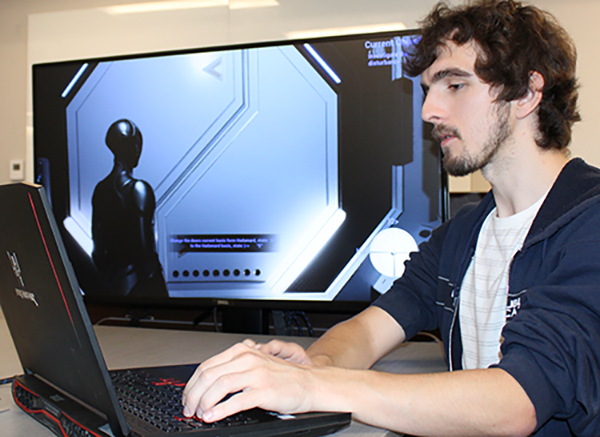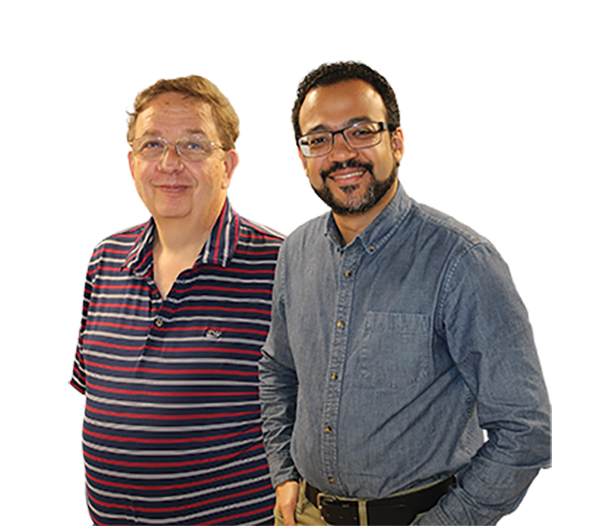Computer Science
Tennessee Tech developing quantum computing courses through EQUIS project

(From Eagle Drive magazine, December 2023)
Tennessee Tech Associate Professor Muhammad Ismail watched with satisfaction as a sleek, shiny android navigated through a dark, foreboding spaceship on the computer monitor. The playable character, controlled by student David Leathers, used quantum computing concepts to unlock doors and communicate with other spacecrafts.
The professor and student had worked together for more than a year – from the time Leathers was in Ismail’s spring 2022 quantum computing class – to develop the video game to help others learn quantum fundamentals.
It’s just one example of how Ismail and fellow computer science professor Anthony Skjellum have been anxious to engage more students in the advancing world of quantum information science. Through their efforts, Tech was one of five universities awarded a three-year grant from the National Science Foundation in the fall of 2023 to develop quantum computing courses, workshops and research projects through the “Creating and Sustaining a Diverse Community of Expertise in Quantum Information Science Across the Southeastern United States” project, or EQUIS.

“Tennessee Tech is well-positioned to lead the efforts of quantum networking, security, computing and machine learning in the Southeastern U.S.,” Ismail said, adding that three of his quantum-focused master’s students have already graduated, while three Ph.D. candidates are pursuing research. “We aim to compete nationally in these areas, and this award is the first step in that direction as it provides our students with the foundational education and research skills to excel and join the quantum workforce.”
Partnering institutions include the University of Tennessee at Chattanooga, Middle Tennessee State University, Fisk University and Auburn University. Funding between the five schools totaled $1 million, with Tech’s share the highest at $270,400.
Skjellum said, “We are preparing for a quantum future in which supercomputing, artificial intelligence and cybersecurity are transformed and enhanced by this emerging technology for computing, communication and security.”
Tech is collaborating with the other EQUIS institutions to develop and deliver quantum education materials at all five schools. Students will apply for scholarships to cover course tuition and workshops. Oak Ridge National Laboratory and IBM Quantum are lending their support as well by providing speakers, trainings and internship opportunities.
“Quantum information science and engineering is at a formative stage,” Skjellum said. “Many of the advances are taking place in applied physics, physics and electrical engineering labs, but fewer universities are focusing on computer science and computer networking from the application level. We are focused on the practicality of quantum in these areas so that as technologies become feasible, we will have strength in their applications, including algorithms and protocols that advance the state of the field and inform our graduates with state-of-the-art knowledge.”
Ismail said the quantum technology market is projected to be worth $106 billion by 2040 and generate revenue of $1,270 billion due to its impact on life science, chemistry, financial services, automotive industry and more. He noted that quantum computing has taken a leap beyond textbook theory: “Now it’s a reality.”
Lean More About Our Programs

